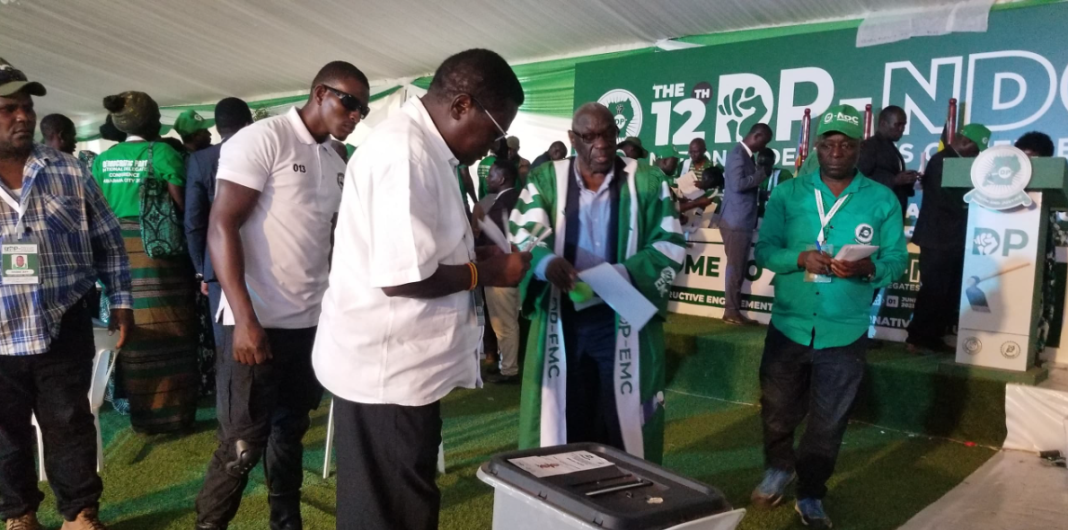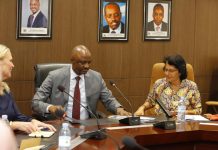After three rough days in Mbarara City, the Democratic Party (DP) has commenced its internal elections, marking the climax of a chaotic national delegates’ conference that has exposed deep-seated rifts within Uganda’s oldest political party.
The conference, which began with delays in delegate verification on Friday, was marred by protests, accusations of bribery, and discontent over the party’s cooperation agreement with the ruling National Resistance Movement (NRM). Tension among delegates remained high throughout the weekend.
By Sunday night, the electoral process finally began despite early morning chaos triggered by the exclusion of Bukoto Central MP Richard Sebamala from the presidential race. The crisis erupted around 3 a.m. when the official list of candidates Norbert Mao (incumbent), Michael Lulume Bayigga, and Eria Alitia was announced without Sebamala’s name. Delegates who had rallied behind him fiercely protested the omission, leading to a police intervention by Mbarara South Division Police Commander SP Esther Namara, who called for calm.
Sebamala, considered a strong contender, insisted no vote should proceed unless his name was reinstated. His removal during the pre-selection process further intensified competition among the remaining three candidates.
The conference officially opened with speeches from Party Chairperson Dr. Mayambala Kiwanuka, Secretary General Gerald Siranda, and President General Norbert Mao. However, their addresses were met with heckling, particularly over the party’s controversial alignment with the NRM.
In a spirited appeal to delegates, candidate Eria Alitia called for unity and a break from what he termed “decades of internal conflict.”
“Seventy years has been enough time for us to be in opposition,” he said. “We have been there because we have been disunited and fighting each other. I want to put DP to power after 70 years.”
Alitia promised to prioritize fielding strong candidates nationwide and urged the party to reclaim its independence rather than relying on alliances with dominant political players.
The conference will not only determine the next president general but also fill several other party leadership positions. For a party that has seen its influence decline in recent years, the outcome is seen as a turning point between preserving the status quo or forging a new, revitalized path.























